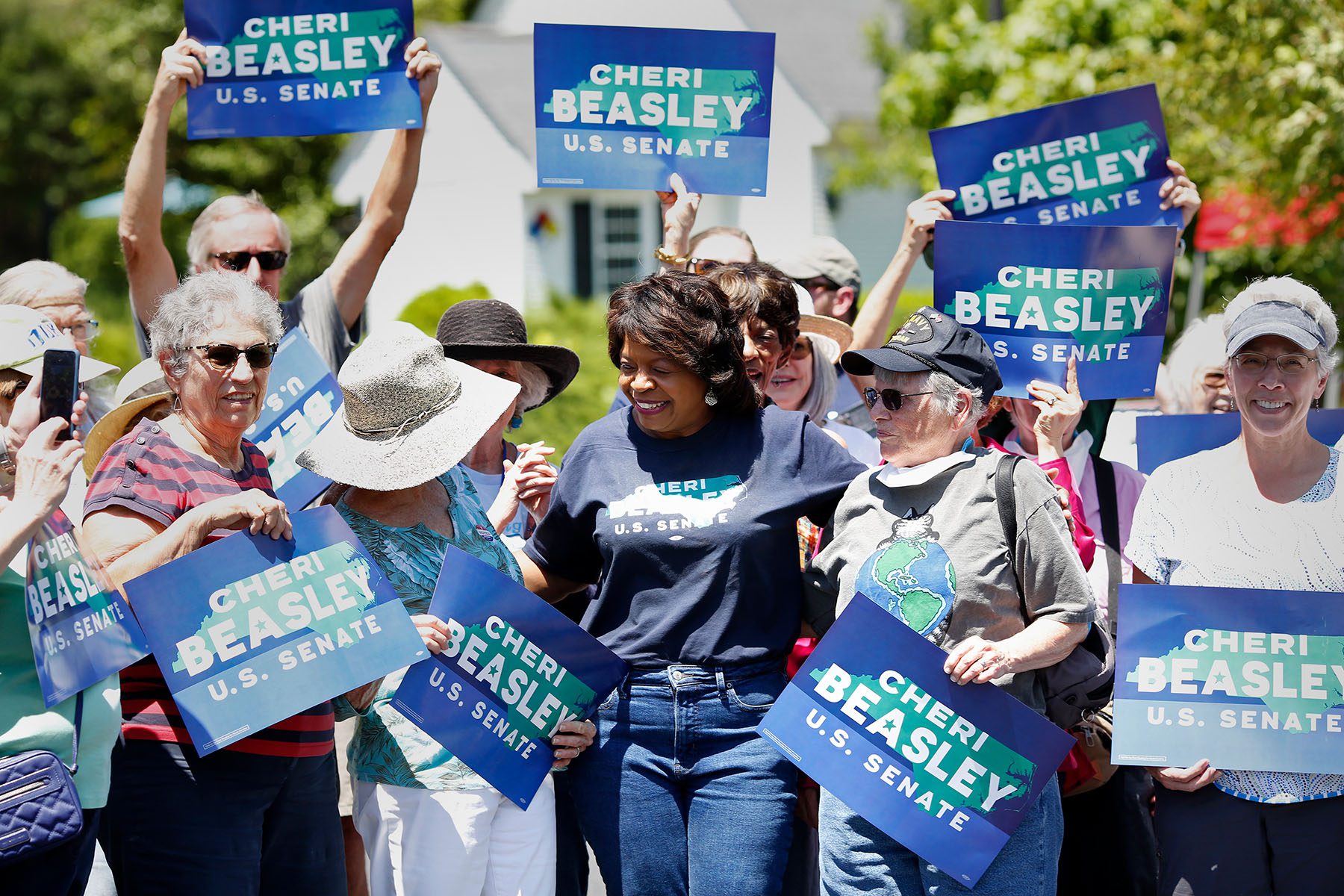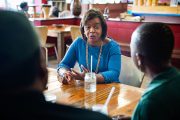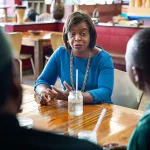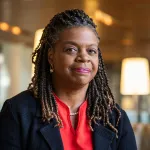IN AND AROUND THE TRIANGLE AREA OF NORTH CAROLINA – The Beyu Caffe was standing room only as people packed into the spot in downtown Durham, less than two miles east of Duke University.
Walking up to the stage at the Black-owned coffee shop, Democratic U.S. Senate candidate Cheri Beasley was greeted by a chorus of claps and cheers from the crowd, a multiracial mix of young and older supporters.
The moment captured what she needs to win in November: energy and excitement from a diverse range of people. If she wins, Beasley will make history as the first Black woman to be elected U.S. senator from North Carolina. The Senate currently has no Black women.
But enthusiasm in Durham, a college town in a county that overwhelmingly voted for President Joe Biden in 2020, isn’t enough for a victory. Beasley will have to turn out voters in both rural and urban parts of the state, putting together a broad coalition of reliable Democrats, unaffiliated voters and perhaps some moderate Republicans looking for change to flip the seat held by retiring Republican Sen. Richard Burr since 2005.
Her opponent, Rep. Ted Budd, is backed by Donald Trump and has embraced many of the former president’s issues, baselessly questioning the validity of election results and accusing Democrats of being soft on crime.
Beasley has already been elected statewide multiple times, as a state district court judge and a state court of appeals judge. But running for office at the federal level is a different story in North Carolina, where voters tend to elect Republicans. The state has not elected a Democratic U.S. senator or backed a Democratic president since 2008.
Academics, advocacy groups and voters frequently describe Beasley as measured and steady, attributes that many supporters at the Beyu Caffe seem to love about her.
-
Previous Coverage
“She is thoughtful, she’s calm,” said Fay Mitchell, 68, a resident of Durham. “In her presence, in her marketing, she makes overtures for a broad spectrum of people. So she’s branded herself as someone that we can all relate to.”
Beasley’s two decades as a judge included serving as chief justice of the North Carolina Supreme Court; she was the first Black woman to hold that position. That judicial experience required her to evaluate issues without political commentary, and likely factors into her demeanor on the campaign trail. But being a Democrat and a Black woman running for a statewide seat in North Carolina also requires a certain balancing act, experts told The 19th.
“We do a lot of ticket-splitting here in North Carolina, so for Democrats in general, you have to run a very North Carolina flavor of race – running a campaign that is broad enough so that you don’t isolate that small universe of voters that are open to vote for a Democrat, even if they may not be registered as a Democrat,” said North Carolina state Sen. Natalie Murdock. “Justice Beasley knows what it takes to be a Black woman that is running statewide.”
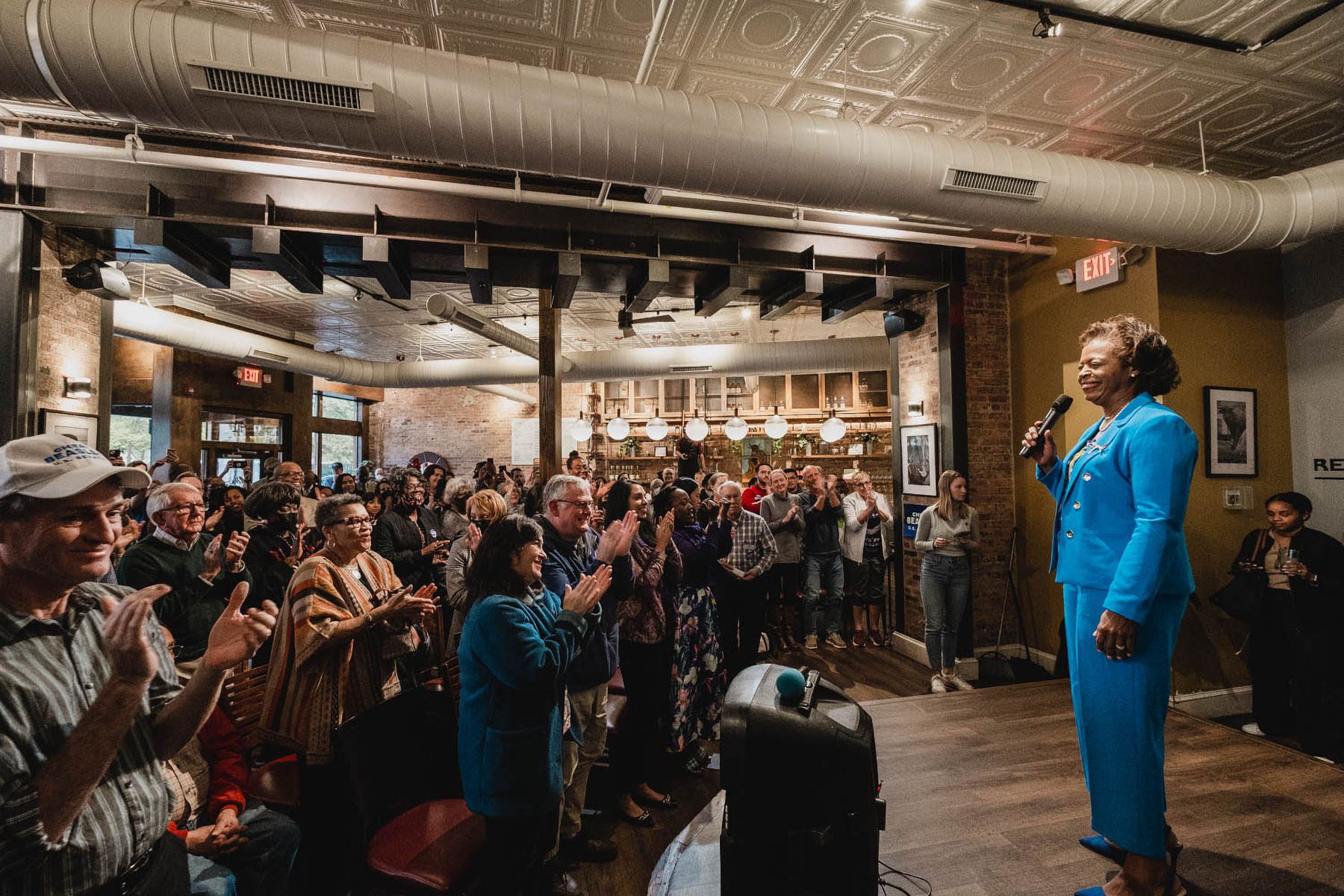
That “North Carolina flavor”-style campaign shows up in the way Beasley champions issues she believes everyone can get behind, such as lowering health care costs, supporting small and rural towns, and expanding benefits for families, such as the child tax credit and paid family leave.
“Access to health care – doesn’t matter whether you’re a Democrat, Republican or independent – these are real issues all over the state,” Beasley told The 19th. “We have issues that impact our climate and impact people and our livelihoods every single day. These are not partisan issues.”
She added that she’s prepared to fight for her state without getting “caught up in the pettiness of partisan politics,” though she has been a vocal supporter of abortion rights in the wake of the U.S. Supreme Court’s decision to overturn Roe v. Wade.
Just how broadly Beasley’s message will reach remains to be seen. Despite being overshadowed in the national spotlight by other midterm races, the contest between Beasley and Budd has emerged as one of the country’s most competitive in a high-stakes election season when Democrats stand to lose control of the Senate.
Working in Beasley’s favor are the efforts of grassroots organizations pushing to register new voters, and engage more young people, communities of color and rural voters. In 2020, an estimated 1.8 million of the state’s 7.3 million registered voters did not cast ballots.
This year, unaffiliated voters became the largest voting bloc in the state, but registered Republicans consistently have the highest turnout rates, said Michael Bitzer, a professor of politics and history at Catawba College in Salisbury, North Carolina.
One group working to educate and engage North Carolina voters takes direct inspiration from Georgia, which notably flipped two Senate seats for Democrats in the last election cycle, largely due to robust mobilization of voters of color.
Aimy Steele is a former teacher who ran for North Carolina’s House of Representatives twice, most recently in 2020. After losing the 2020 race to her Republican competitor by about 2,900 votes, Steele decided there needed to be a more consistent infrastructure in place to mobilize voters of color throughout the state. That led to the New North Carolina Project, inspired by the success of Black women in Georgia including Stacey Abrams, the Democratic nominee for governor, and Nsé Ufot of the New Georgia Project.
“The idea came about after I lost my second election for the North Carolina House of Representatives, along with 17 other Black women losing their elections on the exact same night,” Steele told The 19th. “We all concluded that had we been in the field working and organizing together that we would have had a better outcome in terms of people of color showing up to vote and, really, people in general.”
The organization holds online and in-person community events about political issues and candidates, and financially supports local efforts to educate and spark long term political participation. One effort the New North Carolina Project has given money to is Common Cause, a nonpartisan group that, among other things, works with students at North Carolina’s historically Black colleges and universities (HBCUs) to increase civic engagement on those campuses.
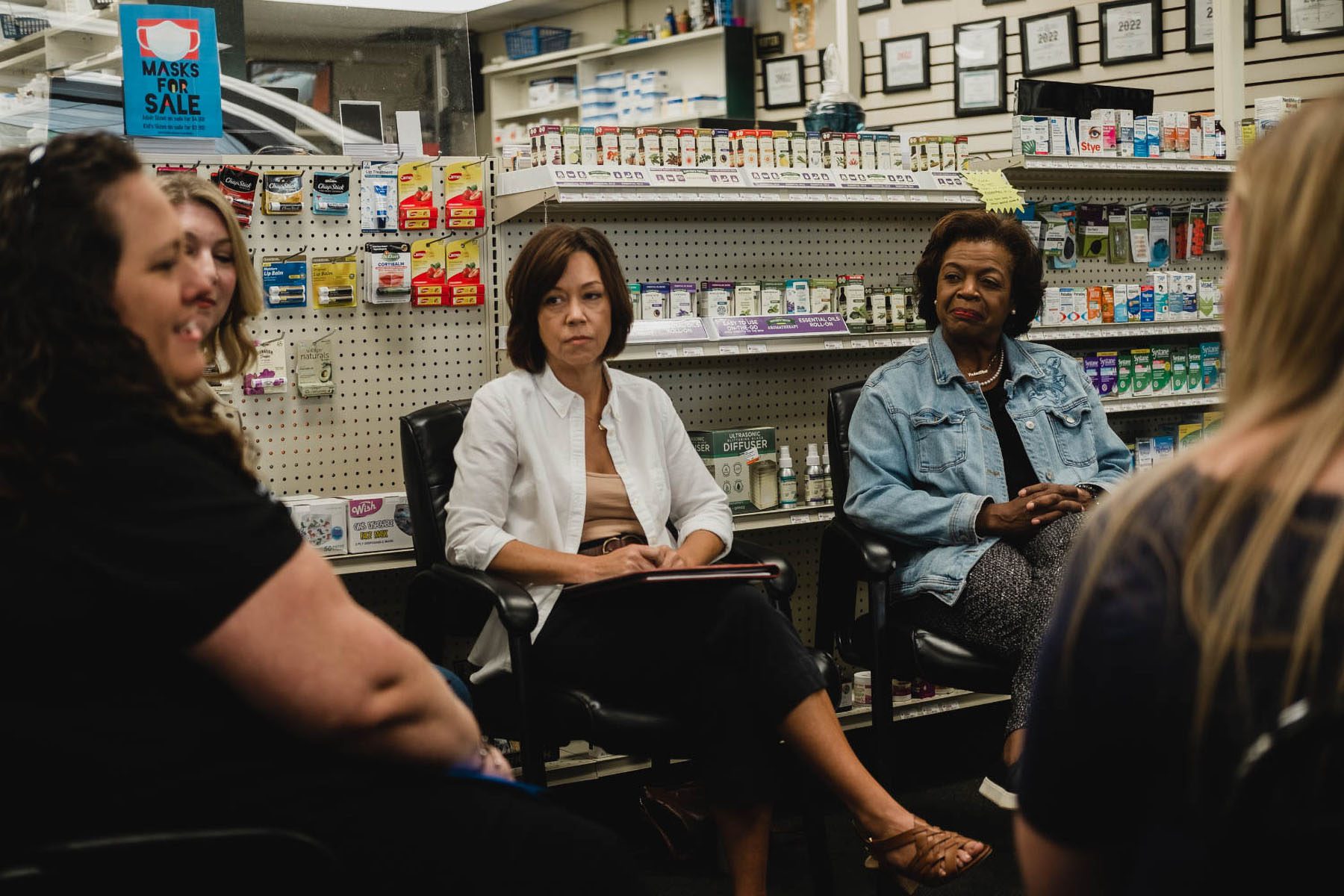
One night at Shaw University in Raleigh, the South’s oldest HBCU, student canvassers walked the campus, boombox in tow, to “storm the dorms” and speak with their classmates about the upcoming election and the candidates.
Connecting with their fellow students is not always easy, two canvassers told The 19th. Many students feel that their vote does not matter and that politicians do not care about their needs. Nakya Carter, a 20-year-old junior at Shaw and a fellow with Common Cause, said her conversations on campus are most effective when she explains how representation at the federal and local levels can affect the everyday lives of young, Black Americans.
“I don’t think that people understand that, so when I’m engaged with my peers, I’m telling them, ‘You have the power to contribute to who’s representing us and our Black community,’” she said.
This year Shaw said it has registered 10 percent of its roughly 1,000 students and has organized events to work with other schools on student registration as well.
Successful mobilization of voters of color would help Beasley close in on a victory to flip the North Carolina seat. But the political landscape groups like the New North Carolina Project face is different from that in Georgia. Beasley is acutely aware that her state is not Georgia, she told The 19th, though she did not provide specifics on how this affects her campaign strategy.
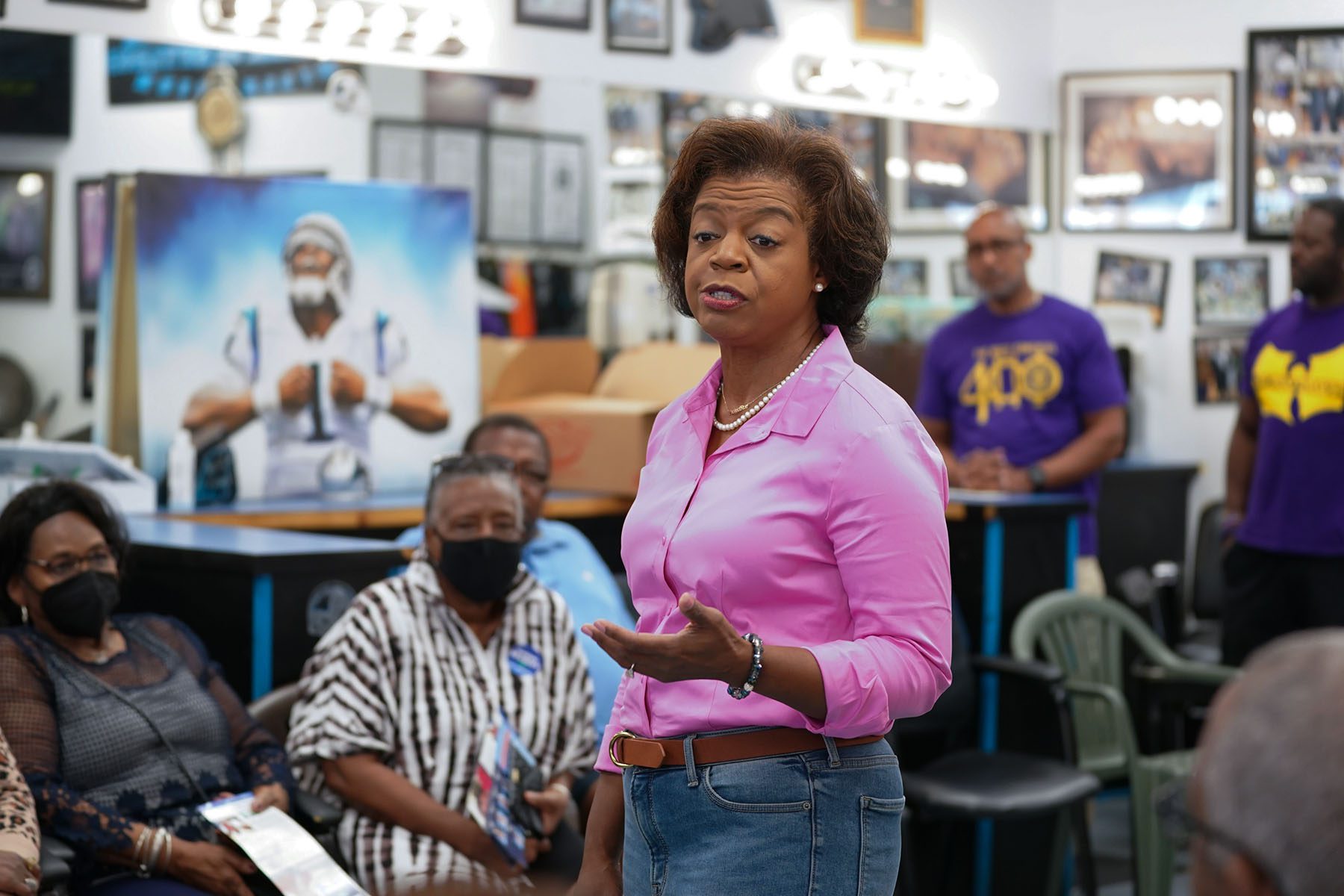
The high number of unaffiliated voters in the state is one important factor for Beasley to consider. And while North Carolina has one of the largest Black populations in the country, it doesn’t have an urban area comparable to Atlanta, nor does it have the same long-term investment in ground mobilization, Bitzer said.
This means at least some rural voters will be a necessity for Beasley, and she has spent campaign time courting them. She touts that she has traveled to all of the state’s 100 counties, 80 of which are rural. Budd’s campaign did not respond to The 19th’s media requests, but his website in April stated plans to visit all 100 counties as well.
Beasley’s approach includes targeted outreach to churches, HBCUs and historically Black sororities and fraternities. She is working to connect not only with Black voters in cities but also those in rural communities who tend to be overlooked by politicians from both major parties.
“Nobody pays attention to rural communities. Nobody’s talking to those voters and asking them, ‘What do you care about?’ ‘What keeps you up at night?’ ‘What’s on your mind,’” said Bonnie Dobson, who works with Down Home, a North Carolina-based civic engagement organization focused on small and rural towns. As a Black woman in Mebane, North Carolina, a town of about 15,000 people, Dobson has felt this first-hand.
Prior to working for Down Home herself, Dobson was approached by one of their canvassers at her home in 2019. Dobson said the canvasser initiated a thoughtful conversation about health care costs and the rights of undocumented citizens. Now Dobson does this work herself, engaging people in “deep canvassing” conversations focused on active listening and trying to understand why people feel a particular way about certain issues without judgment.
All of Down Home’s eight county chapters have endorsed Beasley for Senate. Dobson said she thinks Beasley’s judicial experience and focus on people’s core values make her an appealing candidate for the potential voters she speaks with.
Basic awareness about the race remains a problem, however. From Raleigh to the state’s rural counties, canvassers find that most people either don’t know elections are happening this year or have not heard of Beasley or Budd.
In 2020, North Carolina saw a 75 percent voter turnout for the general election, according to the state Board of Elections. The turnout for the 2018 midterms was about 53 percent. Despite these challenges, Beasley’s supporters and voting advocacy groups hope turnout this year will be higher than average.
“In 2020, we were actually behind the Republicans in getting voters registered, and so now we have organizations that are laser focused just on bridging that gap and also focusing on rural communities,” Murdock said. “I think the combination of all of that is going to put us in a much better position.”
